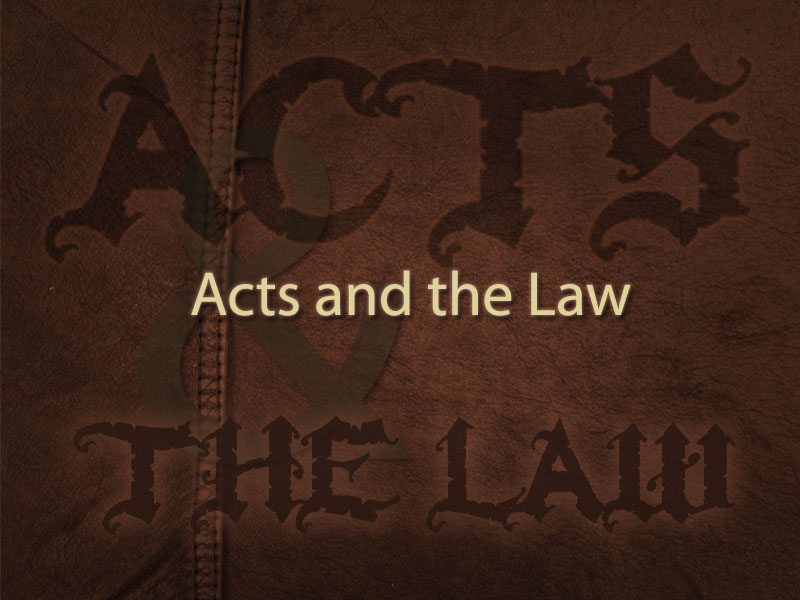
Last Sunday we studied Acts 15. Pastor Viars spoke about how Acts 15 helps us learn about discerning the will of God. With those truths already in mind, I would like us to revisit the text to think more broadly about Acts and the Law, especially from the perspective of the end of the council resolution (vv. 28-29).
We learned that part of the resolution adopted in the Jerusalem council was that the Gentile believers were not under the requirements of the Mosaic Law. (Interestingly enough, Peter did not initially apply that to himself, but that is a question for another day.) So we, as Gentiles, are free from the Mosaic Law. That is a very good thing, in case you were wondering.
Maybe the resolution teaches us not only about what is true, but also how to function with love once the truth is established.
Before I get to the basic answer to this question, let me highlight just a few quick thoughts:
- Remember that the events of Acts 15 occur before any gospel has been written and before any epistle except possibly Galatians. The point is that the only text anyone has to work with is their OT text. They also have the indwelling Spirit who is communicating revelation, but this decision is made without the benefit of the NT we hold in our hands.
- Everyone walks out of this session in agreement. This is particularly striking given the division of Paul and Barnabas that occurs just a few verses later (see 15:36-41). There is something about this resolution that goes beyond simple agreement. This decision seems rooted in the right understanding of the Mosaic Law.
There are many differences of opinion, but I believe the right direction recognizes a couple of facts.
- Assuming that “abstaining from blood” was related to the command to abstain from things “strangled,” we actually have all of these issues raised in later NT writings. In other words, idolatry, immorality, and abstaining from idolatrous practices (especially in pagan temple worship) are all later issues in the NT. 1 Thessalonians explains the rejection of idols and the turning to the living God. 1 Thessalonians addresses the matter of sexual immorality. 1 Corinthians discusses all three. My point is simply that all of these issues find their patterns and roots in the OT, and those roots extend across testaments. The Holy Spirit revealed these points to the apostles who then propogated them in their church planting and writing ministries.
- There is something else in play in the council decision. At this time in history we are witnessing the Gentile inclusion in the church. At the same time, the Mosaic Law could be summed up as loving God and loving others. Jesus made that point several times including in Matthew 22:37-40. In other words, the OT clearly demonstrated a time for Gentile inclusion, and that inclusion did not require the keeping of the Law. But wholesale abandonment of the “Jewish story” is totally inappropriate. It is not loving to reject the story of another person or group of people. It is not obeying the Law to respond in hateful, condescending, or prideful ways toward other believers. The Gentiles needed to learn that as well. Part of the resolution was not simply confirming the true gospel of grace, but it was also gaining a victory of love by preserving the fellowship of genuine followers of Christ.
Maybe the resolution teaches us not only about what is true, but also how to function with love once the truth is established.
 Church
Church